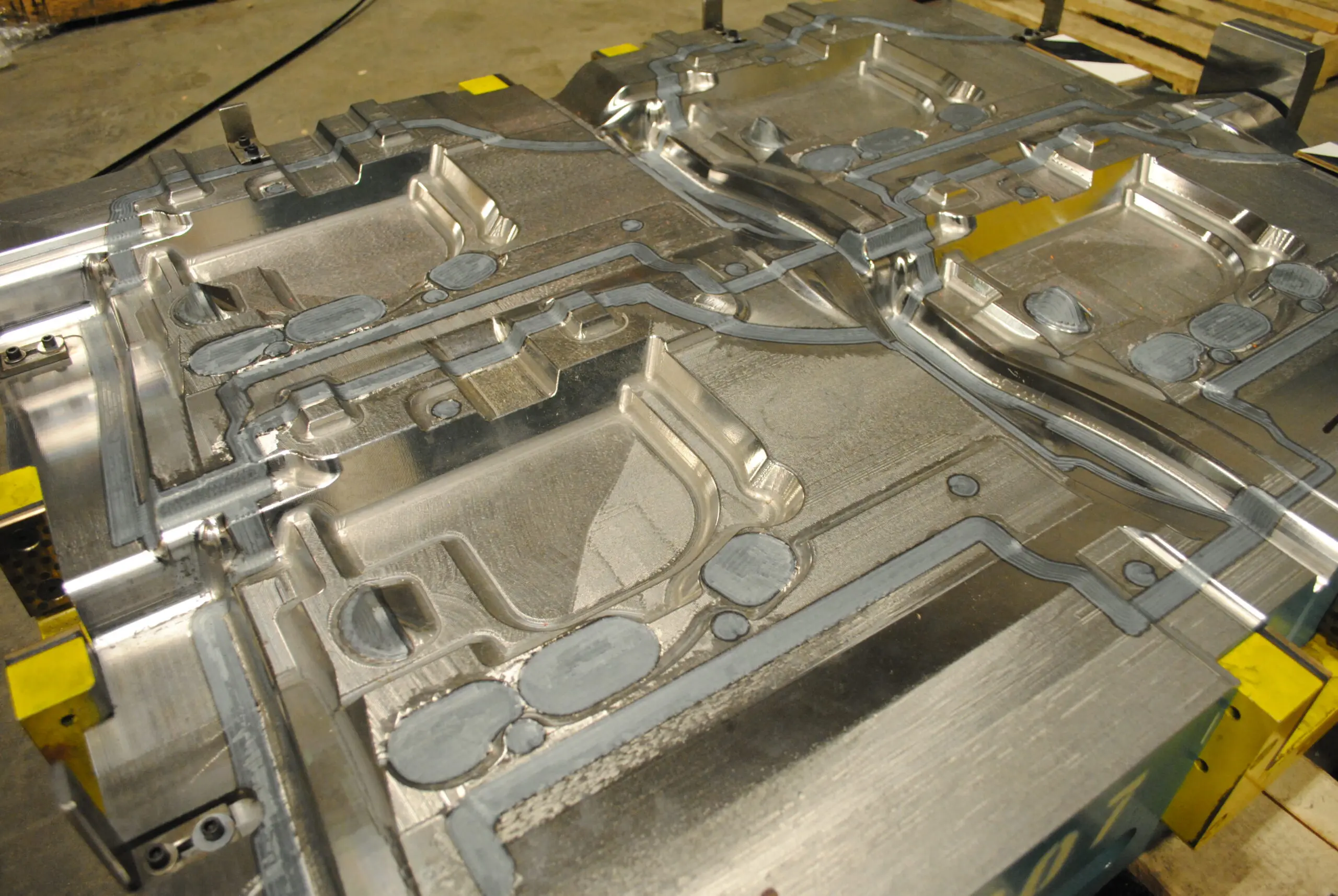Laser hardening (aka laser case hardening) is a heat treatment process that uses a laser beam to selectively harden specific areas of a metal or alloy component. The process rapidly increases the surface temperature of select areas of the material to a critical point, causing it to transform to a hardened phase with controllable depth. It is commonly used to improve the wear resistance and durability of machine parts such as gears, shafts, and bearing surfaces.
This hardening process can be performed using either continuous wave (CW) laser or a pulsed laser. CW lasers produce a steady beam of light that is used to heat the material, while pulsed lasers produce a series of short, intense bursts of light.
Laser surface hardening can be applied to a wide range of materials, including metals, ceramics, and some polymers. However, the effectiveness of the process can depend on the specific properties of the material such as thermal conductivity, melting point, and composition. Some of the most common materials that can be hardened include steels, aluminum alloys, and titanium alloys.
Steps
- Preparation: The surface of the material to be hardened is cleaned and prepared to remove any impurities or contaminants that could interfere with the hardening process.
- Laser Heating: A high-powered laser is used to rapidly heat the material’s surface to a temperature that exceeds its transformation point. This cases the material to undergo a phase change, resulting in a hardening effect.
- Finishing: The surface of the material may be further treated, such as by grinding or polishing, to achieve the desired surface finish.
Advantages
As opposed to a process like induction hardening, which uses an alternating magnetic field to generate heat in the surface of the material, laser hardening has several advantages:
- Precision: Laser case hardening allows for very precise control over the heat-affected zone (HAZ). This means that laser hardening can produce a uniform and consistent hardness across the entire surface, making it ideal for hardening complex geometries and small components.
- Speed: Laser surface hardening is a faster process as compared to conventional hardening processes. This makes it an attractive option for high-volume production.
- Minimal Distortion: The minimal heat input results in minimal material distortion, making it an ideal choice for applications where dimensional accuracy is critical.
- Complex Geometries: Laser case hardening can be used to harden complex geometries, hard to reach sports and irregular shapes making it suitable for a wider range of applications.
For more information visit Laser Hardening – Lincoln Laser Solutions




